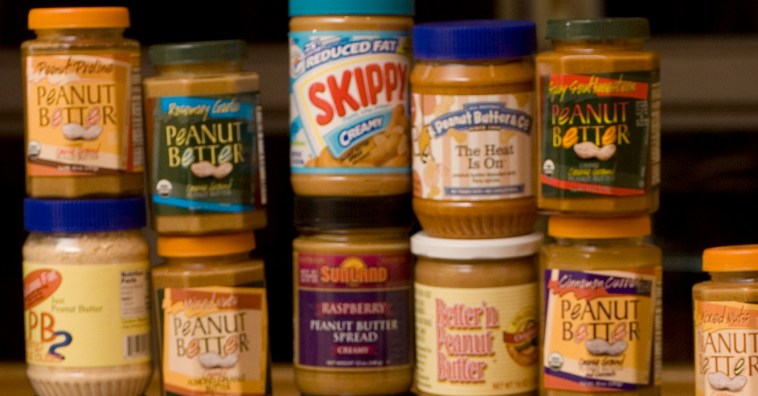If you have a dog in your household, there’s a good chance that you’ve given the pup some peanut butter at one point or another — either as a treat or to mask the hidden medicine.
Videos By Rare
But the Food and Drug Administration wants to make sure you’re checking the label first!
RELATED: The world’s most delicious peanut butter cookies only have 4 basic ingredients
Xylitol, a sugar substitute, is found in some peanut butters and nut butters, and it can be life-threatening to dogs.
“If you feed your dog pills coated in peanut butter, or put peanut butter in their hollow chew toys, make sure to check the list of ingredients first to make sure it doesn’t contain xylitol,” said Carmela Stamper, a veterinarian at the FDA.
Xylitol is also an ingredient in many sugar-free gums and candies, among other things.
When a dog ingests xylitol, there’s a rapid release of insulin and a decrease in the level of blood sugar, which requires immediate treatment. Veterinarians say it can cause seizures, liver failure and possibly death.
RELATED: Cops shatter a car window to save a dying dog
As part of a July 2016 advisory, the FDA is also reminding pet owners that other “people foods” are not suitable for dogs:
- Raw meat
- Grapes, raisins and currants
- Fried and fatty foods
- Moldy foods
- Onions, garlic and chives
- Large quantities of salty snacks
- Macadamia nuts
- Chocolate
The FDA explains that some foods might harm one dog and not another. It depends on many factors, including the animal’s genetic makeup and size.
Just because it’s good for you doesn’t mean it’s good for your dog.
“Our bodies may break down foods or other chemicals that a dog’s can’t tolerate,” said Stamper. “In summer, be particularly careful of foods eaten at picnics and barbecues.”
If your dog eats any of these harmful foods, contact your veterinarian right away.

